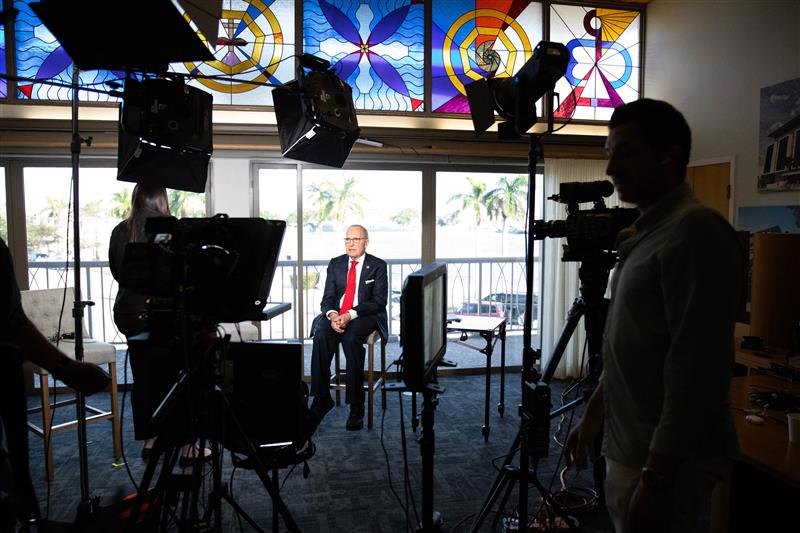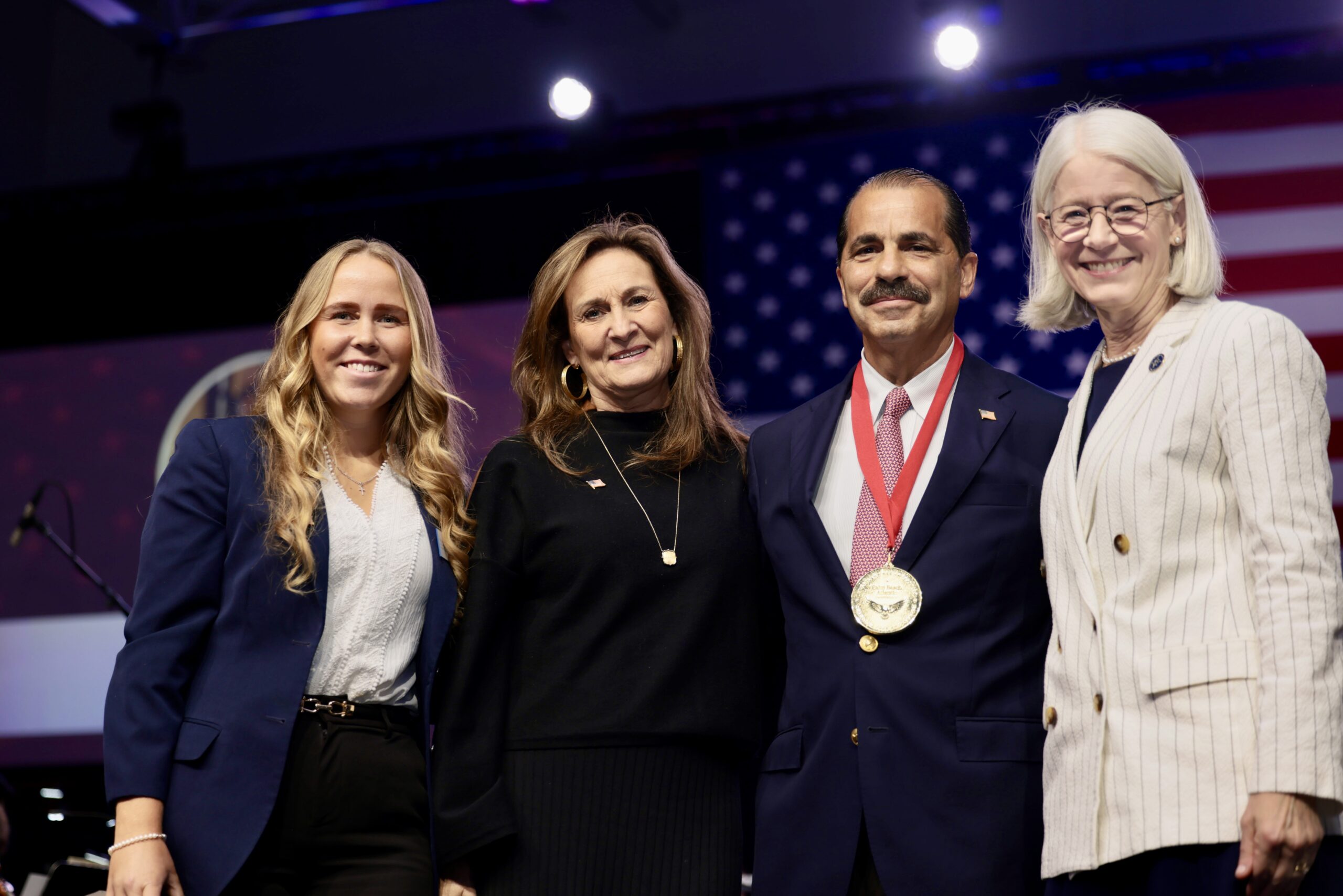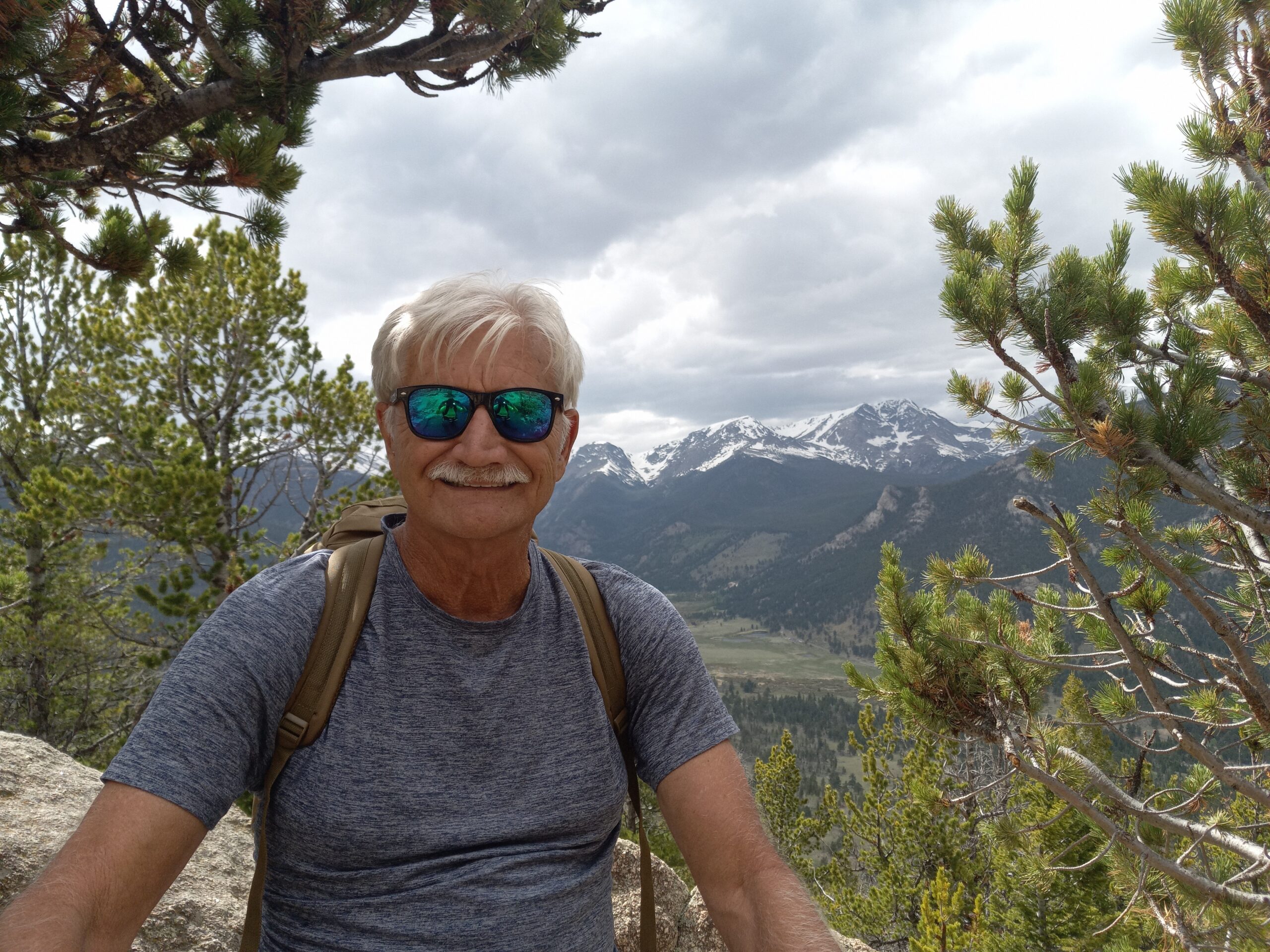The prevalence of serious mental health conditions in young people is a nationwide epidemic and an opportunity for Palm Beach Atlantic, said Dr. Don McCulloch, a psychology professor.
“When you see something in front of you, you need to act,” said McCulloch, a licensed psychologist.
McCulloch presented the fourth lecture in the 2019-20 Series on the Christian University. The series deepens understanding of what it means to be a Christian liberal arts university and inspires interdisciplinary conversations. In previous lectures, professors explored what it means to be a Christian educator, journalist and scientist.
McCulloch earned his bachelor’s degree from The King’s College, his master’s degree from Wheaton College and his doctorate from Nova Southeastern University. He has worked in psychiatric hospitals, community mental health centers and a pain management clinic. He wrote a book, “Perfect Circle: A Husband’s Guide to the Six Tasks of a Contemporary Christian Marriage,” and still practices counseling several hours per week.
He explored what it means to be a Christian psychologist. The perceived conflict between Christianity and psychology arises from the church “being ambivalent regarding mental health issues and missing opportunities to make an impact in society,” he said.
Major mental illness is often a primary factor in homelessness or a person spending time in jail, McCulloch said.
Throughout his undergraduate career, people would question how he could be both a Christian and a psychologist. Pioneers in psychology spoke frequently about sex, imposed evolutionary theory on human development and promoted numerous liberal causes, McCulloch explained. Humanist psychologists came to prominence at the same time Christian fundamentalism was on the rise.
Sigmund Freud, perhaps the most famous psychologist, was wrong about a lot, but “he was closer to the truth in terms of human nature” than his counterpart Carl Jung, McCulloch said. Freud believed that humans were essentially self-serving and prone to impulse.
The 1970s and 1980s brought backlash from the church, specifically, the biblical counseling movement, McCulloch said. In biblical counseling, depression and anxiety are considered sins, and secular psychology is not a legitimate source of treatment — only the Bible is.
“To biblical counselors, there is no such thing as mental illness,” McCulloch said.
The best approach combines evidence-based treatments, such as cognitive behavioral therapy, with a Christian worldview, McCulloch said. Science supports a concept of human nature that Christians can agree on. Cognitive behavioral therapy, a form of talk therapy, has proved an effective treatment for depression, anxiety disorders and alcohol and drug addictions.
It’s good news, given that more American teenagers than ever are suffering from severe anxiety. Surveys of college mental health counseling directors found an increase in students dealing with severe psychological issues.
“It’s a serious problem,” McCulloch said. “I don’t think anyone denies this.”
Students who plan to become counselors need a broad introduction to key issues in the field, McCulloch said. In his history of psychology course, students learn history but also discuss Freud versus C.S. Lewis. They watch a movie about Charles Darwin and discuss his Christian roots, evolution and the impact on psychology.
“There is no substitute for a good liberal arts education,” McCulloch said.
Students need to get out from their dorm rooms and from behind electronic screens to interact face-to-face with fellow students and professors, he said.
“We have low faculty to student ratios,” McCulloch said. “We should take advantage of that.”
McCulloch highlighted another university’s “wellness environment” dorms that motivate students to engage in healthy behaviors. Students sign a contract not to bring drugs or alcohol into their residence hall. In exchange, they’re given free access to classes on meditation, mindfulness, yoga, cooking and nutrition.
“What are they doing? They’re addressing a need that’s real,” McCulloch said.
Palm Beach Atlantic is a drug- and alcohol-free school that offers Christian Bible studies in an environment of hope and love.
“This is an epidemic, but this is an opportunity that’s right in front of us,” McCulloch said.


